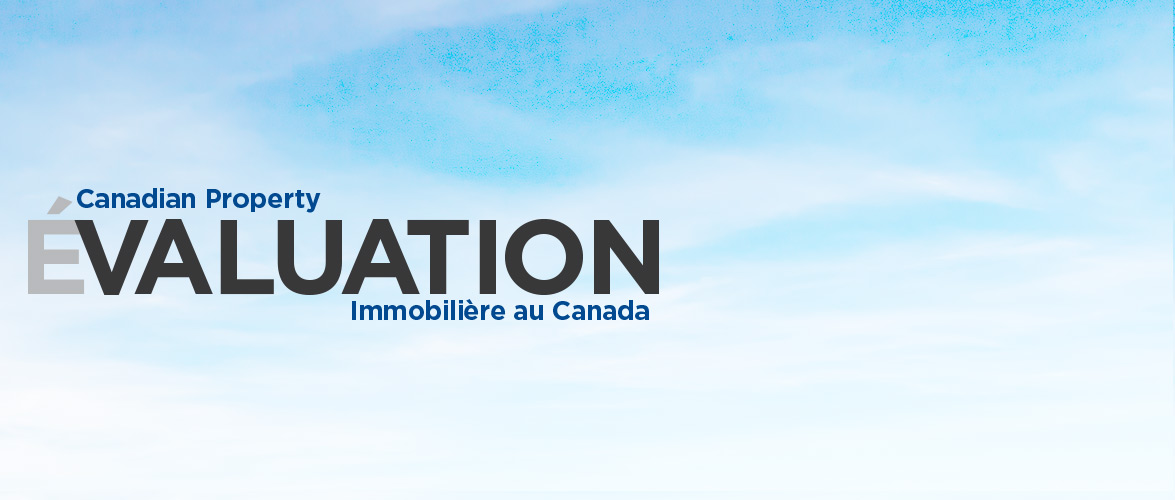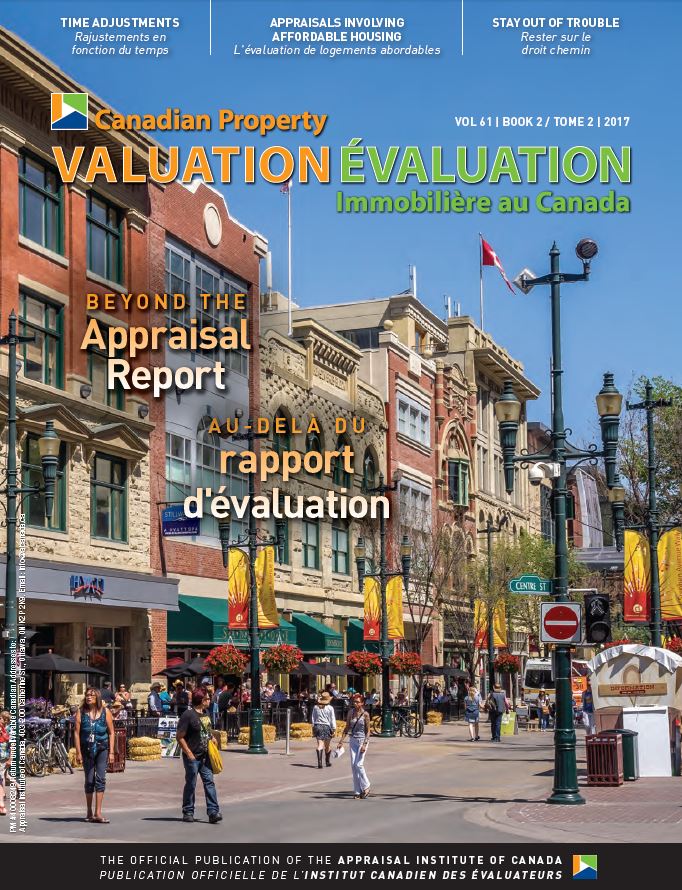Around the Globe – An Interview with Krzysztof Grzesik, REV, Chairman of TEGoVA
Canadian Property Valuation Magazine
Search the Library Online
An interview with Krzysztof Grzesik, REV, Chairman of TEGoVA and VP of the Polish Federation of Valuers’ Association
Krzysztof Grzesik, REV is the Managing Director of Polish Properties, a specialist real estate valuation firm in Warsaw, Poland that employs a team of 15 qualified valuers, real estate market analysts and trainees. Polish Properties undertakes the valuation of mainly commercial properties (offices, shopping centres, hotels and warehouses) for all purposes throughout Poland.
After graduating in real estate management from the University of Reading in 1975, Krzysztof first worked as a valuation surveyor at the UK Government’s Valuation Office and then as a partner of Kinney & Green, chartered surveyors in the City of London. In 1991, he set up the real estate services arm of Price Waterhouse in Poland and was also involved in agency and property consultancy work in the Czech Republic, Hungary and Russia. In 1997, he joined Healey & Baker Poland (Cushman & Wakefield) as a partner, responsible for investment agency, and in 2004, established Polish Properties Sp. z o.o.
What is your position and role with The European Group of Valuers’ Associations (TEGoVA)?
I currently serve as the Chairman of the Board of Directors of TEGoVA, while also representing and serving as Vice President of one of its members: The Polish Federation of Valuers’ Associations (PFVA).
TEGoVA unites 65 national valuation associations from 35 countries representing some 70,000 qualified valuers across Europe. The organization also has observer members from beyond Europe, including the Appraisal Institute of Canada (AIC) and the Appraisal Institute (USA).
This year marks the 40th anniversary of TEGoVA. For four decades, it has been the voice of Europe’s valuation profession and its valuation standard setting body, publishing and regularly updating its flagship product: the ‘Blue Book’ of European Valuation Standards. In the interests of improving standards of valuation practice and market transparency, leading valuers from across Europe have contributed to the Blue Book’s amazing body of knowledge and guidance. As Chairman of TEGoVA, my main role is to raise the profile and status of the valuation profession in Europe through the promotion of its European Valuation Standards and the professional designations of Recognized European Valuer (REV) and TEGoVA Residential Valuer (TRV).
What tangible benefits will the Canadian European Trade Agreement (CETA) have for professional services offered by appraisers?
During the CETA negotiations, the Canadian government won its battle to get the European Union (EU) to agree on so called ‘negative service lists,’ rather than the more traditional ‘positive lists.’ Under a ‘positive list’ system, the only services that are liberalized are the ones on the list. ‘Negative’ means that all services are liberalized except those that are on the list.
Since appraisal services are not on the list, the EU is the AIC’s oyster, and vice versa. However, it is still possible for a national government in Europe to claim that AACIs and CRAs do not measure up to the national appraisal qualifications, which Canadians would still need to earn. CETA does not offer Canadian appraisers the weapons for combating arbitrary discrimination that are available in the intra-EU context. However, CETA actually provides for mutual recognition of qualifications worked out by the AIC and TEGoVA. Such an agreement would then only need to be sanctioned by the CETA Joint Committee. In the meantime, although the existing AIC/TEGoVA Memorandum of Understanding (MoU) is not sufficient to serve as the full basis for a CETA appraisal qualification agreement, it might well be enough to persuade a national authority to not oppose an AACI or CRA wishing to provide services in the EU member state in question.
Through TEGoVA, you worked closely with the AIC to review each others’ standards and to develop a reciprocity agreement that recognizes each others’ designations as being at the same Gold standard. What has that relationship been like and what has it meant for the profession in Europe?
The relationship is historic, given the immense stakes and potential described in the answer to the previous question. However, in terms of the initial pre-CETA objective of, on our side, enabling European appraisers to demonstrate to Canadian real estate investors seeking Canadian-level appraisal professionalism that REV and TRV are equivalent to the corresponding AIC designations, it is too early to tell how much business has been gained from this because we have not systematically questioned our members. What is undeniable is the continued and growing strength of investments in Europe by Canadian real estate funds and companies, so the potential is certainly there.
What needs to happen going forward to ensure that the profession continues to evolve in a positive fashion?
Valuation standards and valuer qualification criteria need to continue evolving in order to keep up with rapid changes to the regulatory environment, with particular emphasis placed on ethical behaviour among our professionals.
We also need to contribute more to market transparency worldwide and I believe that this will not be achieved if valuers analyze market transactions in different ways and if they apply their own versions of the accepted methodologies (comparative, income and cost). For example, in the valuation of commercial property, while discounted cash flow methodology is now widely applied, it is not done so consistently.
For many years, the focus, certainly in Europe, has been on valuation standards rather than methodology, the latter becoming largely the preserve of academics. For decades, practitioners have stayed clear of seeking ways of harmonizing valuation practice. Such a situation is no longer tenable at a time when clients are questioning the diversity of methodologies applied even within the same jurisdiction. Indeed, many clients wrongly perceive valuation standards to be about methodology. They are not.
While not encroaching on academic endeavour, I believe that the profession worldwide should formulate a ‘collective’ practitioners’ view on methodological issues and draft user-friendly guidelines. For its part, TEGoVA has this year established a European Valuation Practice and Methodology Board (EVPMB) to do just this. In the first instance, the EVPMB will review, update and develop further TEGoVA positions on valuation methodology. It will also respond to methodological issues as they arise, in particular, the assessment of the European concept of mortgage lending value and the accuracy of automated valuation models. The EVPMB will facilitate Europe-wide and hopefully Trans-Atlantic discussion on methodological issues.
How has the valuation profession developed in your own market in Poland?
A truly modern market-based valuation profession only began to develop in Poland just over 25 years ago following the fall of communism. Because of the Polish government’s need to ensure at that time that state-owned assets were not sold off too cheaply, almost from the start the Polish Parliament introduced a law implementing compulsory valuer licensing. To gain such a license, a candidate has to be a university graduate, obtain a post-graduate diploma in valuation, undergo a period of structured training, and pass a national valuers’ examination. Since the introduction of valuer licensing in 1992, some 7,000 candidates have become licensed, although the number of valuers actually practicing today is around 4,000. While many aspects of valuation practice are controlled by statute, the PFVA has a major role to play in training valuers, organizing continuing professional development (CPD) events and developing a ‘green book’ of valuation standards consistent with European Valuation Standards.
As in the rest of Europe, valuation methodology is a hot topic of discussion and Polish valuers are playing an active part in contributing to the European discussion.





